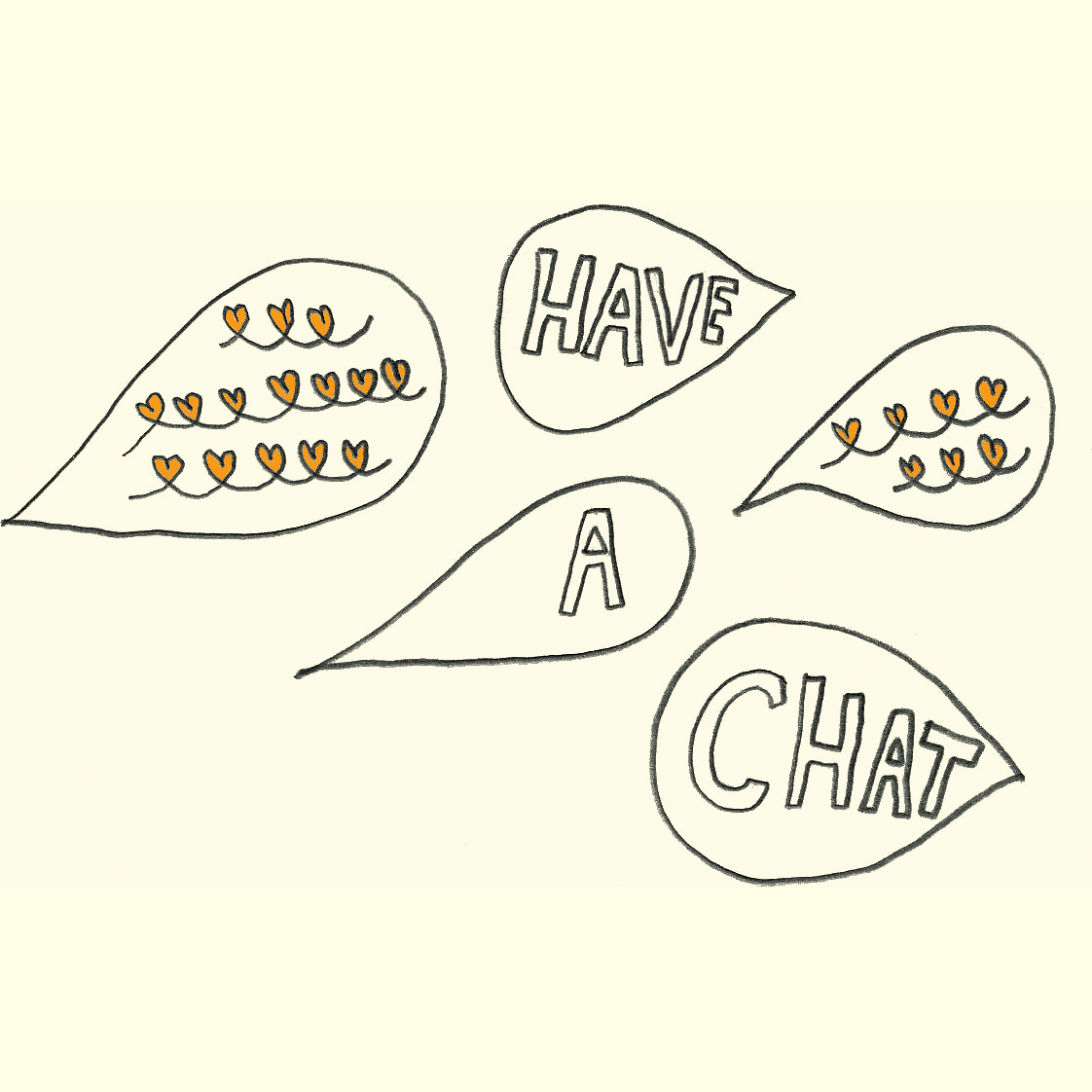Imagine a chat where every topic feels like a dead end, where you speak a few words and then, well, nothing. It's like walking into a room with no way out, or maybe just one very heavy, unmoving door. Now, picture something different: a chat that feels like a house with many rooms, each with its own inviting entrance. That's what it means when people say, good conversations have lots of doorknobs. This idea, so simple yet really powerful, suggests that the best talks aren't just about sharing information; they're about creating chances for others to join in, to explore new thoughts, and to keep the exchange flowing naturally.
When we talk about doorknobs in a chat, we are, in a way, talking about those little openings, those invitations we offer. They are the questions we ask, the shared experiences we mention, or the slightly open-ended comments that give the other person a clear way to respond and add their own thoughts. Think about those times you've been in a discussion that just clicked; it probably had many of these small, accessible points. People were able to pick up on what was said, maybe add a personal story, or ask for more details, keeping the whole thing moving along.
This way of looking at how we talk with others changes things a bit, doesn't it? It moves us away from just delivering information and pushes us towards building a shared space. It's about being aware of how our words can either shut down a chat or, conversely, open up a whole new set of pathways for connection. We're aiming for that feeling where the talk feels easy, where everyone feels like they have a say, and where new ideas can pop up just like that.
Table of Contents
- What Makes a Conversation Open?
- How Do We Create More Doorknobs?
- Why Do Some Chats Feel Closed Off?
- The Role of Listening in Good Conversations
- Can Anyone Build Better Talk?
- Spotting the Signs of an Engaging Doorknob
- What Happens When We Don't Find Doorknobs?
- The Value of Openness in Good Conversations
What Makes a Conversation Open?
So, what exactly gives a chat that welcoming feel, that sense of being truly open? It's often about the little things, the subtle signals that invite others in rather than putting up a wall. Think of it like this: when someone asks a question that isn't a simple yes or no, that's a doorknob. When they share a personal experience that might connect with someone else's life, that's another. It’s about leaving room for the other person to contribute, to add their piece to the puzzle, you know? A talk that feels open tends to have moments where you can easily jump in, where you don't feel like you're interrupting or forcing your way into a one-way street. It's almost like a shared project, where everyone gets to put a brick in.
The openness comes from a give-and-take, a back-and-forth rhythm. It’s not just about waiting for your turn to speak, but truly listening for those chances to connect. Sometimes, people share information that, on its own, might seem like a dead end, but a good conversationalist can find a doorknob even there. They might say, "That reminds me of something similar," or "How did that make you feel?" These kinds of responses turn a statement into an invitation, creating a new entry point for the chat to continue. It’s about seeing possibilities where others might only see conclusions.
Consider how online communities work, too. Like when someone asks for "good places for roms" or "safe exploits," the best answers aren't just direct links; they often include context, warnings, or even suggest "Go to the freaking megathread xd" – which, in its own way, is a doorknob to a larger, more comprehensive discussion. It's about pointing people to where more of those doorknobs exist, helping them find more ways to explore a topic. This approach makes the chat richer, more helpful, and certainly more engaging for everyone involved.
- Richard Williams Spouse
- Lisa Lopes Andre Rison
- How Long Has Ynw Melly Been In Jail
- Ynw Melly Jail Time
- Mutt Lange
How Do We Create More Doorknobs?
Creating more doorknobs in our conversations means being a bit more thoughtful about how we phrase things. It starts with moving away from statements that offer no room for reply. Instead of saying, "I went
Related Resources:



Detail Author:
- Name : Prof. Tremayne Bailey DVM
- Username : steuber.cathrine
- Email : alexandra84@conroy.com
- Birthdate : 2001-08-24
- Address : 1812 Daron Point Apt. 633 Calliechester, CT 26917-6934
- Phone : 1-571-605-3676
- Company : Tremblay, Lang and O'Connell
- Job : Industrial Equipment Maintenance
- Bio : Quos cumque suscipit ipsum eius adipisci totam laborum. Dolorum veritatis aut quia autem facilis rem labore. Vel expedita voluptas vel ut a quia.
Socials
linkedin:
- url : https://linkedin.com/in/camylle.turner
- username : camylle.turner
- bio : Magni est voluptatem ratione iure.
- followers : 3488
- following : 2351
twitter:
- url : https://twitter.com/camylle_official
- username : camylle_official
- bio : Aut excepturi qui eum eos. Molestias nemo aspernatur porro harum. Molestiae ipsa ut nulla enim nam. Vero ab nam quis voluptatem.
- followers : 4736
- following : 1121
tiktok:
- url : https://tiktok.com/@camylleturner
- username : camylleturner
- bio : Et nulla dicta dolores cum. Vel consequatur architecto nemo voluptas quasi.
- followers : 6214
- following : 2735